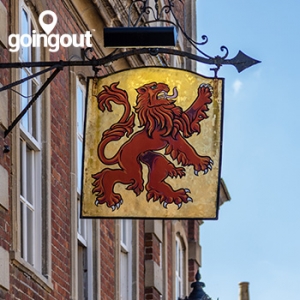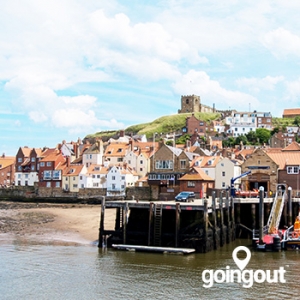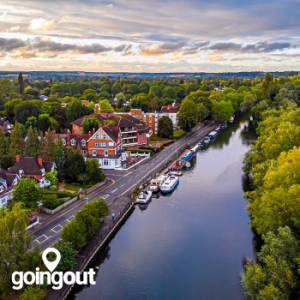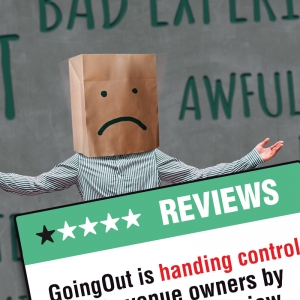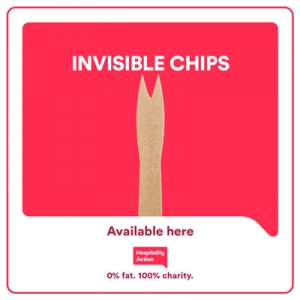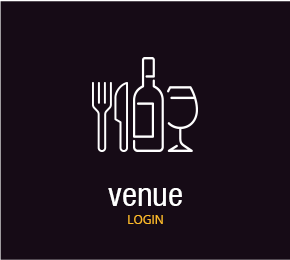The most common pub names in England
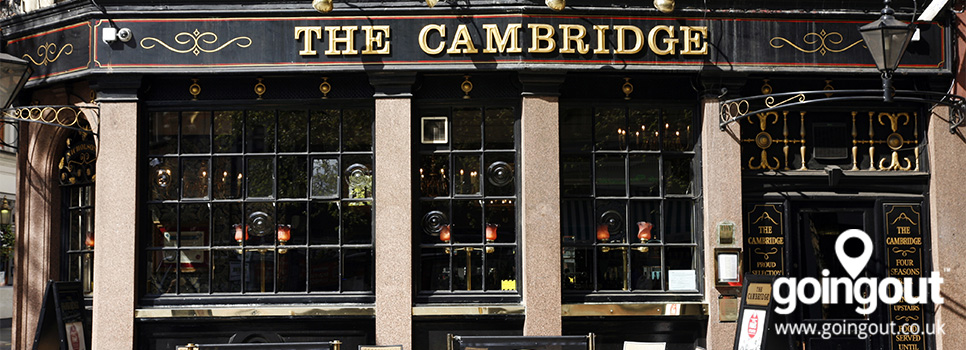
Whether you are planning on Going Out in Birmingham or having a quite drink in Durham, one thing you will always see is a traditional Bristish Pub! According to a study conducted by Nomen United Kingdom, there are more than 57,000 local English pubs today. Pub names are gateways to the past, telling people the rich history of the UK. These quirky names date back to the old times, specifically during the Roman times, when specific materials are hung outside establishments to tell people that there is alcohol available in the specific area. As years went by, these materials were replaced by painted signs then written names as improvement in literacy rates were seen. Although there are numerous names among pubs in England, there are specific ones that are dominant and are seen more prominent than others. Here are some of these pub names that you’ll frequently see as you travel through England:
11. The Queens Head
To start this list, we have 'The Queens Head'. This name has nothing to do with Anne Boleyn and Catherin Howard’s beheading. This name, according to some, might just be derived from when pubs had pictures of Queen Victoria or Elizabeth I on their signs. Some people also wonder why there are no pubs with The Queens Head as a name which featured Elizabeth II. Well, the answer is that modern rules state that reigning monarchs should not be placed on pub signs as long as they are alive.
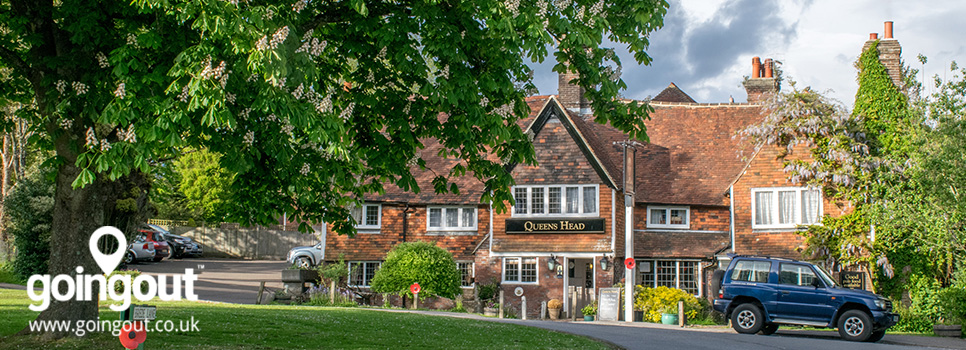
10. The Kings Head
For a safer announcement of loyalty, many pubs use the name “King’s Head” instead of “Pope’s Head” when King Henry VIII removed himself from the Catholic Church. There has been a lot of anti-Catholicism during this time for so long, too, so this name was safer, and pub owners would not have to change their names frequently.
9. The Bell
As said earlier, pub names originate from different things, form simple objects to highly-regarded monarchies. In this case, The Bell is often a religious object where pub names originated. For instance, there is a pub called The Six Bells because some people say that the church near the pub rings six times every time. In addition to this explanation, there is also a belief that bells possess magical powers, so people are being protected against evil spirits by this object. Names like Eight Bells, Old Bell, and other ones are said to have religious connections, so many pub owners also use this name for their pubs.
8. The Swan
Reigning monarchs have always owned swans, so this is another symbol with a heraldic meaning. One pub is now famously known as Swan with Two Necks because in the 16th century, the Vintners were given a swan by Queen Elizabeth I. To distinguish the Vintners’ swans from those of the monarchy, the former’s swans have two notches in their beaks, so there was a swan with two necks. On the other hand, some say that Henry VIII’s fourth wife Anne of Cleves also possessed a white swan as a family crest, so pubs used this as their sign. In addition to this, The Swan is frequently related by the people to ownership rights or traders’ meeting place, so there is no clear original explanation of where this name originated.
7. The Ship
Another famous name of pubs in England is The Ship. There are different stories behind this, but some pubs are named like this because the owners are retired seamen, or the inn and pubs were frequented by seamen. Whatever the reason is, there will always be an interesting story behind The Ship as a name for pubs. Some pub owners today even use specific names of ships. Right now, there are 243 pubs named The Ship, according to Google.
6. The New Inn
Terms like Old and New are often placed before the main name of pubs to make it more distinct or to differentiate itself from nearby pubs. Sometimes, pubs with the word “New” in it are also located on main roads so that people can easily access them.
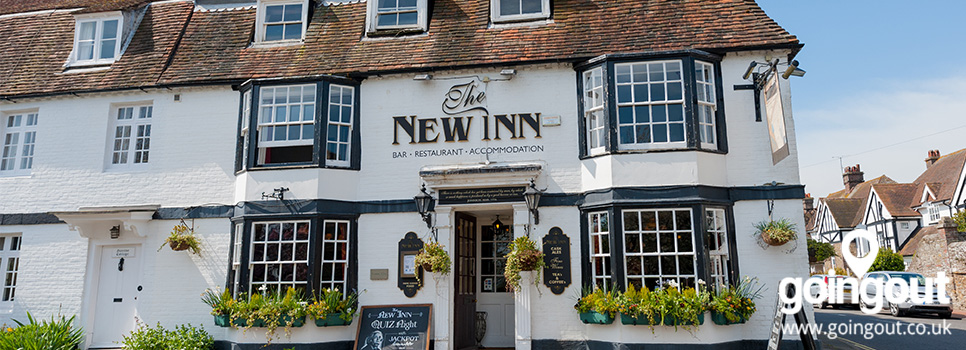
5. The Plough
Fifth on the list is The Plough, which is a generic name related to the agricultural past of the UK. As many people know, Europe was dominated by feudalism for a long time. In feudalism, there are considered two types of laborers – peasants and serfs. They are both protected by nobles in exchange for their labor on the land. With this setting, pub owners named their pubs “The Plough” to honour the peasants and the products, specifically the cereals, which pub owners also use for their ales and whiskeys. Currently, there are 225 British pubs named The Plough.
4. The White Hart
Another name related to heraldry, pub names often make use of The White Hart as a pub name. Ruling during the 14th century, a white stag was on King Richard II’s official badge, and during his time, he commanded all inns and pubs to hang signs in their areas to let people know that these are drinking establishments. Because of this, a lot of inn and pub owners used the white hard on this badge as a sign and as a name on many pub signs. Today, 225 pubs are named The White Hart.
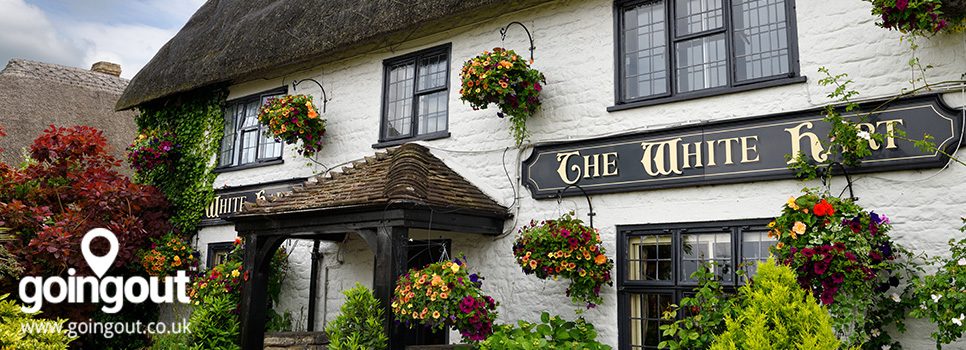
3. The Crown
Third on the list of popular British pub names is The Crown. Without a funny or super eventful history, The Crown being a pub name is more serious in nature. During the old time, many kings and queens were beheaded or dethroned, so by having a generic name, the pub owners do not need to repeatedly change their name in accordance to the person or family reigning. Having the name “The Crown'' makes it seem like pub owners are supporting whoever is in the highest position at the time and is honestly safer. Some pub owners also used the name “The Crown Inn.” Today, there are said to be 328 pubs with the name The Crown
2. The Royal Oak
The second most well-known pub name in England is The Royal Oak. This name is said to be from a story studied in English history. In 1651, Prince Charles Stuart and Cromwell fought in what was known as the Battle of Worcester, but the former was defeated. Because of this, the prince was considered an outlaw when he escaped the battle. In order for him to escape and not be known, he dressed up as different people, most commonly as a woman, hid in several houses, and climbed an English oak tree where he hid for a day. This tree was said to be located in Shropshire’s Boscobel House. After hiding in this tree, he went to France. When he came back to England, he became known across the land as Charles the II, king of England, Scotland, and Ireland. The oak tree where he hid then became the Royal Oak, and the history this tree holds was honored and celebrated by using it as a pub name. Right now, there are around 344 Royal Oak pubs.
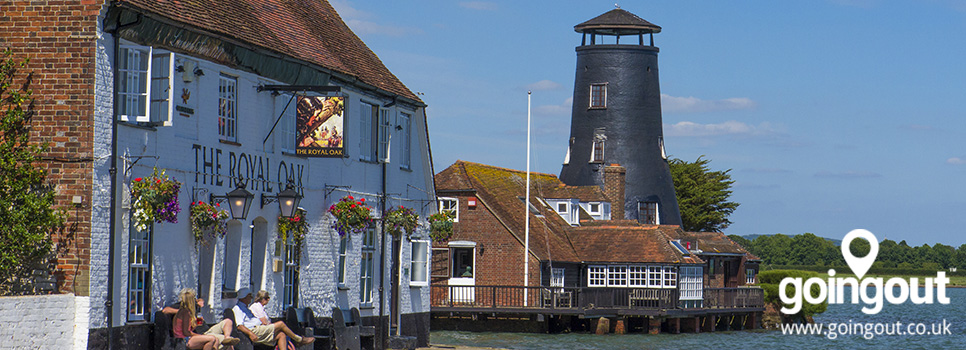
1. The Red Lion
The Red Lion is the UK’s most famous pub name. Heraldry was famous during this time, so animals and armorial bearings are often incorporated in British pubs’ signs and names. The red lion is said to be from the coat of arms of the renowned Duke of Lancaster John of Gaunt. John of Gaunt lived during the 1300s, but the red lion is said to be made popular when James VI and I imposed the red lion to be displayed on pubs and essential buildings. As of today, there are around 600 Red Lion pubs.
So if there is one thing to take from this article is that if you are planning a night out with a few mates down The Red Lion, get an address! There are 16 of these Pubs in Birmingham.
Restaurant Customer Reviews - The Unfair Restaurant Rating System
Going Out is handing back control to venue owners and taking it away from unfair and biased, review based websites.
The majority of reviews left on mainstream websites are merely opinionated dribble! These websites are a breeding ground for the overly biased, unfair, frequently disingenuous and often aggressive opinions of individuals with too much time on their hands, looking to vent online with a community of equally ‘experienced counter-part critics’! Unfortunately, for venue owners and operators, these mainstream review based websites provide the platform, the allies and the audience in abundance.
We understand that reviews play an important part in consumer decision making and if processed with a ‘pinch-of-salt’ they can be helpful! However, it is rare that reviews of food and drink truly represent the product, premises, service or experience received, ranging from being disappointing, to potentially disastrous, for the pub, restaurant or venue in the public spotlight.
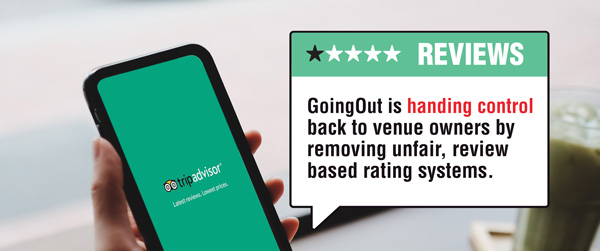
Negative reviews – an unfair rating system…
Tens of thousands of UK restaurants, pubs and hospitality venues fall foul of unbiased, opinionated, rude and damn-right insulting reviews left on major websites such as TripAdvisor. These negative reviews can be devastating for the business, often causing the venue owners a great deal of unnecessary stress and anxiety. User reviews can also go far beyond complaints about a mediocre meal, poor pint or shoddy service to much more serious claims about theft, fraud and sexual assault, the seriousness of these reviews becomes a huge and overwhelming problem for restaurant and pub owners throughout the UK.
Marketing people call a consistent one-star attack of negative reviews, on a single venue, “review bombing”. Negative review bombing is terminology that strikes fear into the heart of anybody operating a food and drink business; often these attacks go undetected by the website and unless the one-star reviews breach ‘review guidelines’ they are not easily removed! Before the TripAdvisor platform was launched back in 2000, the customer was not always king, and the customer was not always right! With the launch of several major review driven platforms it is now the case that the customer has become a formidable opponent, the customer is now empowered to make or break a venue – a daunting reality for restaurant and pub owners everywhere.
It is not uncommon for venue owners to lean on the legal sector and threaten to sue customers who post negative reviews about their venue. Unless dealing with an extreme and slanderous case this is typically a hugely expensive time-sink, with many hours of additional frustration and no satisfactory result.

"But not all reviews are bad" we hear you say.... In fact, there are millions of positively glowing reviews online!
Fake reviews – a flawed rating system….
There is a huge shadow industry of fake reviews and people paid to leave fake reviews, good or bad! Reviews can be bought, sold and traded on the internet easily, completely undermining the entire review-based system – it is a flawed popularity contest in which you can pay to win, or pay for somebody else to lose!
The review based business model relies upon having real customers, post real reviews - it’s not rocket science, but it is exceptionally difficult and costly to police. Without this layer of transparency the entire credibility of a system must be questioned. Tripadvisor has been under scrutiny many times over the years with the credibility of reviews and ratings on the system in question. One of the most damaging aspects of fake reviews is that they cast doubt over genuine reviews, the reader may be able to spot an overly zealous review or a review that is just so bad it’s hard to comprehend, but this leaves the vast majority of food and drink reviews in a questionable limbo, “do I believe the information presented or not”. This trust issue results in a flawed business rating system.
It has been proven many times that anybody can beat an online review based website rating system. If you have ever watched the Vice magazine documentary created as a hoax by the journalist Oobah Butler called ‘The Shed at Dulwich’ then you will understand that review based ranking systems are fundamentally flawed. The Shed at Dulwich became the number 1, top-rated restaurant in London on TripAdvisor simply by uploading fake reviews!
Its well worth a watch, you can find the documentary here: https://www.youtube.com/watch?v=bqPARIKHbN8
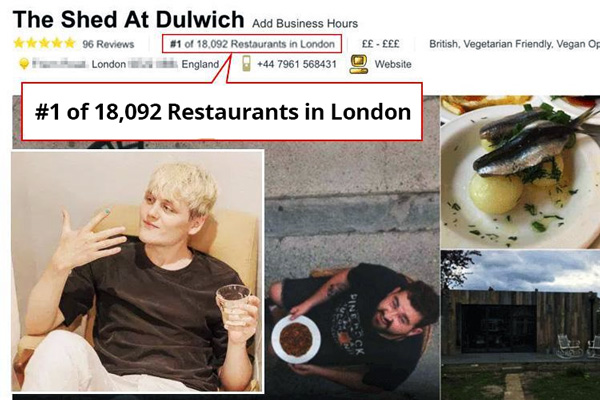
It is easy to understand just how simple it is to fabricate reviews and boost a venues’ popularity by review-bombing fake reviews. Platforms that can be manipulated and falsified to this degree are a serious concern to venue owners and are also doing the general public a disservice as they too are being deceived.
Common sense…
At Going Out we acknowledge that poor product and poor service exists and typically these factors alone will determine a venues fate! We understand that for high quality and well managed venues; you are only as good as your last service! Everybody in the trade has dealt with a difficult customer, everybody has a bad day, and everybody has the ability to improve, without the need for this to be unfairly advertised to millions of potential paying customers, through a negative review!
With over 800million reviews and opinions listed on the TripAdvisor website the problem facing landlords and restaurateurs in huge, on average their website receives 270 global contributions every minute, a frightening statistic if you happen to be on the receiving end of overly biased, unfair, disingenuous or the aggressive opinions of a disgruntled individual.
Beat the reviews…
It’s time to hand control back to venue owners! Thousands of venues are utilising www.goingout.co.uk to showcase their venue in detail and to promote their food and drink through the search engine. Restaurants, pubs clubs and venue owners are promoting their menu, facilities and benefits in real time and getting more paying customers through the door. Going Out is empowering venue owners to get more customers with NO REVIEWS!
Going Out - Official supporter of Invisible Chips
Hospitality Action's, Invisible Chips is a simple initiative and way for people to assist people working in hospitality whose livelihoods are under serious threat from the Coronavirus pandemic that has swept through the UK during 2020.
Restaurants, pubs, cafes, coffee shops and hotels reopened post lockdown in the UK and have started to resume trading in a very uncertain and restricted marketplace with further curfews and safety measures in place by the Government.
Hospitality Action has created a fun and engaging fundraising campaign to raise awareness and raise money for people directly affected by the downturn in the Hospitality sector, who may face future hardship as a result of the impact of Covid-19 within the UK.
0% fat, 100% charity. Invisible chips are a side dish that you can order directly from your chosen venues menu, or from the invisible chips website, and donate directly to the charity to help those affected.
SHOW YOUR SUPPORT, BUY INVISIBLE CHIPS: https://invisiblechips.org.uk/buy-invisible-chips/
The main brand ambassadors for Hospitality Actions, invisible chip are Heston Blumenthal and Fred Sirieix with an army of stockists and supporters including Brewdog, Gaucho, Hilton Hotels, Big Drop Brewing and our own organisation, Going Out UK.
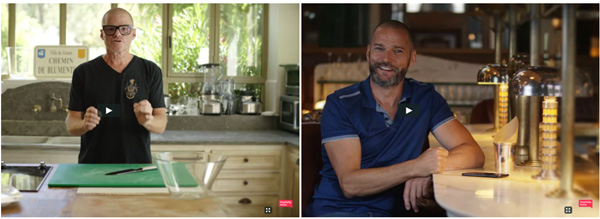
Going Out UK are a proud supporter of the Invisible Chips initiative and endeavour to promote the initiative on our website and marketing materials in a bid to ‘chip in’ and raise National awareness of this fantastic and worthwhile initiative.
You can view all of the Invisible Chips supporters by visiting the official website here: https://invisiblechips.org.uk/supporters/
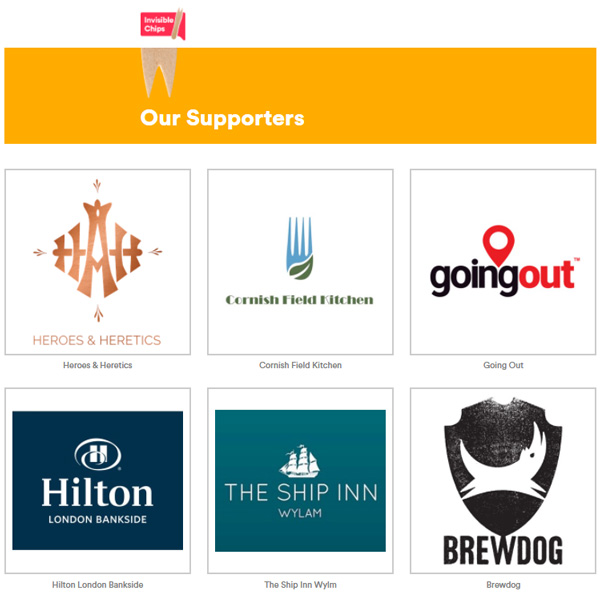
 find your venue
find your venue feature your venue
feature your venue